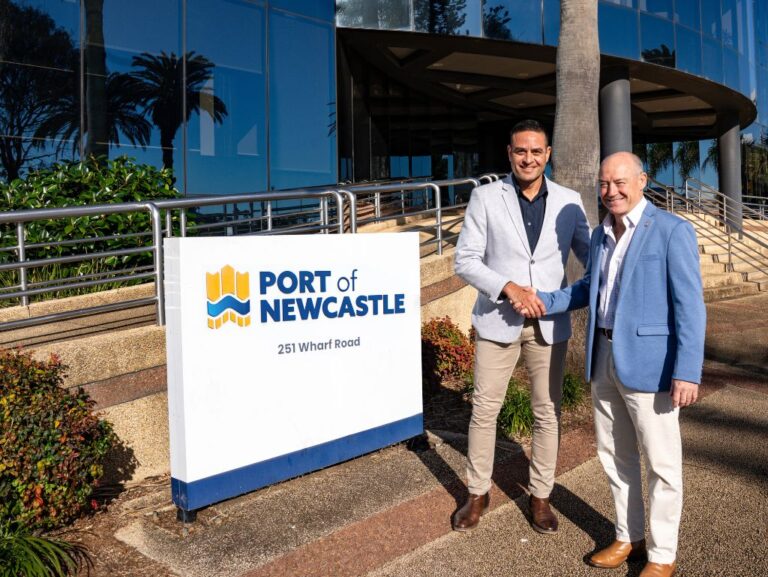Port of Newcastle has been recognised for its environmental achievements, leadership and commitment to sustainability, by becoming a Gold Partner in the NSW Government’s Sustainability Advantage program.
The Port has participated in the program since 2019, which is run by the NSW Government’s Office of Energy and Climate Change and supports organisations to embed sustainability into everyday practices, become more efficient by reducing energy use, water use and waste and set targets for emission reduction.
CEO Craig Carmody said the Gold Partner status is a reflection of the progress the Port has made in its sustainability journey over the past five years.
“We have made significant inroads since we first launched our ESG Strategy to embed environmental, social and governance best practice in everything that we do and we are proud to have created a culture of continuous improvement within the Port that drives the business to find new and innovative solutions to the sustainability challenges facing our industry,” Craig said.
“To be recognised as a Sustainability Advantage Gold Partner is a fantastic achievement and is an acknowledgement of just how far we have come in such a short space of time; from our port-wide energy efficient lighting upgrade to the decarbonisation of our operations through the use of 100% renewable power.”
Chief Financial Officer and ESG Strategy Lead, Nick Livesey, said the Gold Partner status builds on Port of Newcastle’s 2023 GRESB (Global Real Estate Sustainability Benchmark) results, which saw the Port maintain its 5-star rating for a third consecutive year and increase its overall score to 96 out of a possible 100.
“Our focus is to create a resilient and environmentally responsible Port that continues to support the economic prosperity of the Hunter and NSW economies, along with local jobs,” Nick said.
“This year alone the Port has increased its SBTi Scope 1 and 2 emissions reduction commitment to align with a 1.5 degree warming scenario, as well as continuing to lead the industry by setting a reduction target for Scope 3 carbon emissions.”
“We are also proud signatories to the United Nations Global Compact, the largest corporate sustainability initiative in the world, reflecting the Port’s commitment to aligning its ESG and diversification strategies with the principles of the United Nations Sustainable Development Goals.”
The Port currently handles over 4,000 ship movements and 145 million tonnes of cargo annually, including dry bulk, bulk liquids, ro-ro, general and project cargoes and containers.
IMAGE | CFO Nick Livesey, who leads the Port of Newcastle’s sustainability initiatives.







